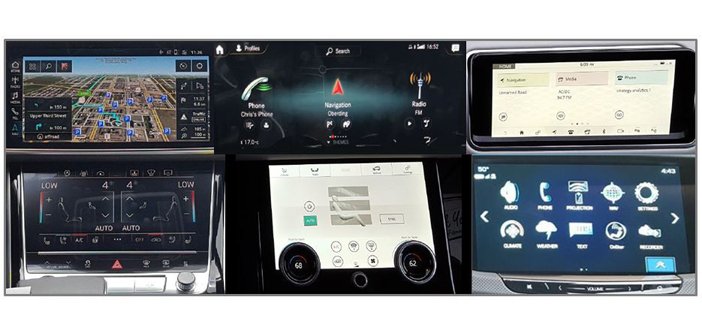The gulf of perceived differences in touchscreen performance between cars and other devices has become wider. That’s according to a new report from the In-Vehicle UX (IVX) group at Strategy Analytics, which has investigated car owners’ satisfaction with their onboard touchscreens.
The findings suggest that, long hamstrung by poor UX and extended production cycles, in-car touchscreens are seen by car users and buyers as lagging behind the experience offered by touchscreens outside the car, such as on mobile devices. As such, consumer satisfaction has continued to slide in China and Europe, while reaching historic lows in the USA.
Surveying consumers in the USA, Western Europe and China via web-survey, key report findings included that difficult text entry and excessive fingerprint smudging are common complaints among all car owners.
Because touchscreens have reached market saturation in the USA, satisfaction with in-car screens has tailed off significantly. However, touchscreens remain a relatively newer phenomenon in many car models in Western Europe – compared with the USA – and thus their limitations are less prominent in the minds of car owners.
Overall touchscreen satisfaction fell for the fifth straight year in China, indicating a growing impatience for in-car UX to match UX found elsewhere in the consumer electronics space.
Derek Viita, senior analyst and report author, commented, “Part of the issue with fingerprint smudging is the angle at which in-car touchscreens are installed – they make every fingerprint increasingly visible. It is an issue across all touchscreen-based consumer electronics. But in most form factors and especially mobile devices, consumers can quite easily adjust their viewing angle. This is not always the case with fixed in-car screens.”
Chris Schreiner, director, Syndicated Research UXIP, added, “Although hardware quality certainly figures in many of the usual complaints car owners have about their screens, it is not the sole factor. Cockpit layout and UI design can play important roles in mitigating some issues with in-car touchscreens.”



